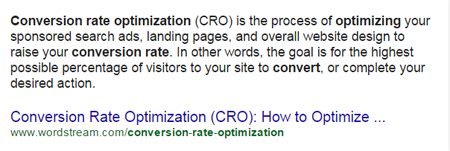 The new year is just about here.
The new year is just about here.
In many ways, the online marketing community has never been stronger. Online marketing has made great strides in the democratization of tools – Google Content Experiments and Optimizely come to mind, but there are a lot of areas where sophistication that only belonged to Fortune 500 companies before can be had on the cheap. Smartphones helped make new services possible – store locators, one-touch dial from web sites, and so on.
And yet, it seems like in a lot of other ways, the marketing community has been dealt some really heavy blows. If you still miss the keyword data you had in 2013, the organic Facebook reach you had from that same year, or exact match ad targeting within AdWords that you had just earlier this year, we have this to say – there, there. We feel your pain.
It seems like we’re increasing in terms of data and technology sophistication, but ceding ground to larger companies in terms of control – and the trends are really something to watch out for.
1. If you’re in the business of providing easy answers, prepare to get eaten (by Google, mostly)
Google is getting smarter all the time, but the way in which it is getting smarter has some marketers worried. And rightly so. Think about what you expect to see when you search for flights from LA to New York. You’d want the information as quickly as possible, right?
And if you’re a consumer, this result is great:
Now think about it from the point of view of kayak.com or cheapflights.com. That result being front and center on the search results page is pain itself. Not only will they be saying goodbye to a steady flow of organic traffic users to their site, they just gained one of the most powerful companies on Earth as a competitor in their space – that blows.
Now, this hits some industries harder than others: travel, transport, and media companies will get hit harder than you or me, as will anyone providing weather or sports updates. But even in relatively specialized fields, answers on the search pages are starting to become more common. If you search ‘what is conversion rate optimization,’ for instance, you get this:
WordStream could have started branding at the very early stages of the buying cycle, maximizing their gains in the attention phase, for people looking into the definition of CRO. Instead, a fraction of those users will never click through – the traffic has been denied because the answers are right there.
That’s the search page, moving forward – getting smarter for consumers, but starting to become daunting for those providing quick answers to easy questions.
Save for a small fraction of industries, though, this shot is not lethal. And it’s not like for the search ‘what is conversion rate optimization,’ Google is going to provide a ton of resources then and there.
Solution: Get even more specialized, and get the content out there. Provide the answers that only you can provide, make them accessible enough that they can be understood by your target audience, and ensure that you offer more than basic definitions because that gravy train has left and it’s never coming back.
2. If you don’t control the environment, prepare for (mostly unwanted) changes
In 2013, Facebook started limiting organic reach for brands – and in 2014, they reduced it further. There was no survey to the brands, they didn’t consult you about this; your reach is just gone.
In 2014, Google took away exact matching for AdWords. It really doesn’t matter that there’s uproar in the community, that level of precision for ads is just gone.
From 2015 on, what you should get comfortable with is that when you don’t own the environment, you can expect changes to the environment. Many of them will be changes you don’t like, many of the features you depend on will be gone moving forward, and that will be that.
Facebook is a land owner, and you are renting your Facebook presence. The rental may be making good ROI, and you should definitely be measuring it. But you shouldn’t be so dependent on places you rent that changes to Facebook, LinkedIn, Twitter, and AdWords that their changes can severely hurt your business.
Solution: Reduce your dependence on things you rent, and increase your dependence on things you own or control. Your web site’s conversion rate is largely immune to Facebook’s algorithm changes, your email conversions aren’t dependent on AdWords staying roughly the same year over year. We’re not saying don’t run ads or don’t do social media – that would be crazy. But it doesn’t hurt to prioritize the areas you own versus the ones that you rent.
3. If you’re not spending to fix mobile UX, get ready for some pain
This year, media ad spending in the US for smartphones and tablets went up 83%. According to sources like eMarketer, the percentage of total search spend (SEO and SEM) will be higher for smartphones and tablets than desktops, for the first time, in 2015. That the mobile user experience will need to be good for other investments like ads to be worth it is a given, but if you’re still on the fence about spending for UX on mobile, you might want to consider this past year’s developments:
- Google has started experimenting with using mobile friendliness as part of the search algorithm
- Mobile-friendly labels for searches now display on the search results page, encouraging searchers to click through to mobile optimized web sites
Solution: First things first – you’ll need to devote time and money to mobile. But don’t just dive in. Check your analytics package for the pages and tasks that people are doing on mobile, and optimize for those. Don’t just automatically decide that Responsive Web Design will solve your problems, actually go view your data, avoid the common mistakes on mobile, and fix your mobile experience.
Planning for 2015
If you look at the general trends, a few things will become increasingly clear:
- you need to be more reliant on things you control, and less dependent on things you rent
- you need to step up your content game so that algorithms and search pages can’t readily answer what you can answer
- you need to focus on mobile user experience, and know how to read and process mobile analytics
None of these should take you by surprise, but they might be worth reminding yourself about as you begin to plan for your year.



